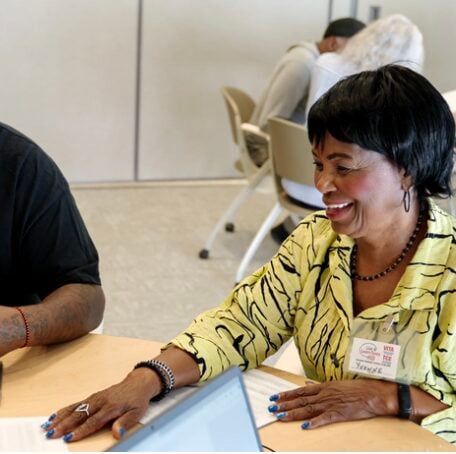I’m looking forward to the basketball competition at this year’s Olympic Games, which will be held Aug. 5-21 in Rio de Janeiro, Brazil.
It will be the first time the Summer Games are held in South America, and Rio is reputed to be a fantastic party town. It even has a thoroughbred racetrack, The Jockey Club, which is open every Thursday night. The Kentuckian in me loves that.
But I also must admit that I’m more concerned about security than ever before. I know that a record amount of money will be spent on assembling an Olympic police force that probably will be bigger than Brazil’s army. Still, we live in perilous times where terrorists are apt to strike anywhere, anytime.
For years, Olympic purists, their heads stuck firmly in stand, tried to ignore the fact that international politics have been part and parcel of the Games ever since 1936, when Hitler hoped to use the Games in Berlin to show off his Nazi party and its belief in the purity of the German race. Of course, Jesse Owens, an African-American from Ohio State, sort of tweaked Der Fuhrer’s mustache, not to mention his theories, by winning four golds.
In a sense, terrorism was introduced to the world at the 1972 Olympics in Munich, Germany. That was when eight terrorists from the Palestinian group Black September infiltrated the Olympic Village and took 11 members of the Israeli team hostage. Eventually, all the Israelis were killed, including eight who perished in a failed rescue attempt at the Munich airport.
The entire drama was broadcast to a horrified to the world, live and in color, by the ABC, which held the rights to the Games. The network’s coverage was anchored by Jim McKay, a highly respected sports reporter who shifted seamlessly into a news role. After the shootout, a wan and haggard McKay told the world, “They’re all gone.”
It was the first time many had seen terrorists in the flesh. One of the enduring images of those games was a terrorist in a ski mask standing on a balcony and brandishing an automatic assault weapon over an Israel captive.
Instead of canceling the Games, the International Olympic Committee decided to carry on to the bitter end. That paved the way for the basketball gold medal game between the USA and the Soviet Union, perhaps the most controversial game in the hoops history.
After a series of officiating and scorekeeping gaffes, the Soviets made a layup for a 51-50 victory, the first defeat ever for an American Olympic basketball team. To this day, the members of that team have refused to accept their silver medals on the grounds that they were cheated out of the gold.
Of the two Olympics I’ve covered, politics intruded on both.
The first came in 1968, when I was a rookie reporter at Sports Illustrated. Those games were held in Mexico City, where riots claimed several lives only days before the Games began. The members of the U.S. team were hardly immune to the unrest at home over the Vietnam War and the civil rights movement.
Still, it was a something of a shock to see three American track stars – John Carlos, Tommie Smith, and Lee Evans – stand atop the medal stand and, with heads bowed, raised gloved hands in protest of American racism as the national anthem was being played.
That was the year when Lew Alcindor of UCLA declined to try out for the Olympic team, ostensibly because of his sympathy with the American protest movement. Even without the world’s best player, however, the U.S. won the gold medal largely due to Spencer Haywood, who entered the Games as a relative unknown and left as a budding superstar.
And then there were the 1984 Games in Los Angeles.
In retaliation for America’s boycott of the 1980 Games in Moscow, the Soviet Union boycotted the ’84 Games. Nobody was more disappointed than Bob Knight, the American basketball coach. He wanted badly to avenge the 1972 debacle in Munich for his friend Henry Iba, the legendary Oklahoma State coach who had been the U.S. coach in ’72.
Knight was so consumed with the idea of revenge that, after his team had demolished Spain to win the gold medal, he told them to pick up Iba and carry him off the floor, which they did. It wasn’t the same as if the American had defeated the Soviets, but it was good enough for Knight and others still smarting from the debacle in Munich.
I’ll always be grateful to Knight for inviting Bob Hammel of the Bloomington Herald-Telephone and I into the U.S. locker room to share his moment of glory. I remember Michael Jordan smoking a cigar as he clowned around with Sam Perkins and Waymond Tisdale. Mostly, I remember Knight standing in the middle of the room and finally allowing himself a smile.
“Boy,” he said, “you can’t believe what an incredible relief it is to finally have this thing over.”
And the next day he went fishing in Idaho instead of hanging around to march with the U.S. team in the closing ceremony.
As it turned out, that was the last bunch of amateurs to win Olympic gold for the United States. In 1988, the Americans lost to the Soviets in the semifinals in Seoul, Korea. They came back to beat Australia for the bronze medal, but the wheels had been set in motion for the U.S. to begin using NBA players in the 1992 Games. And that’s the way it has been ever since.
Although the Olympics have been free from terrorism since 1972, it’s also true that terrorist activity has increased dramatically in the last 20 years. The attacks on the World Trade Center and Pentagon on Sept. 11, 2001, brought terrorism to American soil and led to all sorts of new security agencies and policies, as anybody knows who ever gets on an airplane.
I’m not saying the U.S. should bail out of this year’s Games in Rio. I agree with the belief that we cannot live in fear or isolation. But I think it would be foolish for any athlete, including the multi-millionaires who will make up the USA basketball team, to laugh off Isis, the radical terrorist group that has rattled the world. How to deal with them has been a major issue in this year’s U.S. Presidential race.
At their best, the Olympics are a soaring tribute to the human spirit. Rio should certainly provide a colorful backdrop for wondrous achievements in basketball and every other sport. I can only hope and pray that my misgivings about the Rio Games are no more than the musings of an Old School guy who has seen too much to take anything for granted.
Billy Reed is a member of the U.S. Basketball Writers Hall of Fame, the Kentucky Journalism Hall of Fame, the Kentucky Athletic Hall of Fame and the Transylvania University Hall of Fame. He has been named Kentucky Sports Writer of the Year eight times and has won the Eclipse Award twice. Reed has written about a multitude of sports events for over four decades, but he is perhaps one of media’s most knowledgeable writers on the Kentucky Derby


















